Description
Quaker Parrot for Sale
The Quaker Parrot for sale or Monk Parakeet is very charming! This inquisitive parrot is a great talker, enjoys human interaction, head scratching and cuddling. They are hardy, adaptable, and easy to breed. With good socialization they can be very calm and peaceful, one of the best companions! Quaker “Monk” Parakeets are considered a very good first bird!
These parakeets are generally quiet birds and their sweet disposition makes them exceptional pets. The Quaker Parakeet gets it’s name from the facial feathering that has a gray bibbed pattern, resembling an old fashioned Quaker costume. Besides being known as Quaker Parakeet and Monk Parakeet, they are also called Green Parakeet, Grey-breasted Parakeet, and Montevideo Parakeet.
The Quaker “Monk” Parakeets cheeks, throat, crown and lores are gray. It’s upper breast is gray with light edges, giving them a scalloped appearance and the lower breast is yellowish. The back of the head, neck, rump, wings and the rest of the under parts are green, and there can be some blue outer feathering. It has a long, pointed tail with a mixture of yellow and bluish green. The female is lighter in coloring than the male.
The normal green Quaker Parakeet is by far the most common, but other mutations are also available including yellow, blue, pied, and albino varieties. The young birds have a gray forehead with a green tinge. These birds grow to a length of 11-12″ (29-30 cm).
Care and Feeding Quaker Parrot
Fresh food and water must be provided daily. Quaker “Monk” Parakeets eat a variety of sprouts, seeds, fruits, vegetables, and commercial pellets. They like nuts with the shells cracked, such as walnuts, pecans and almonds. They also enjoy the same nutritional foods humans eat, including cooked chicken. Cooked beans, rice, and grains are also enjoyed, but soft foods like these will spoil in about 4 hours. An occasional millet spray is a nice treat.
They do like a regular bath. A heavy crock placed on the bottom of the cage will do fine.
The more options you provide, your bird can decide what is most comfortable to eat, sleep, etc. Always provide lots of toys for your parrot to keep himself entertained when you are not around. Cycle the toys every 3-4 weeks to prevent boredom.
Handling/Training
Taming and training parakeets is pretty easy. Parakeets become accustom to their new environment fairly rapidly. Consequently very little time is required for parakeet training, they can quickly become easy to handle. Repetition, patience and time are the keys to successful parakeet training!
Taming Basics:
Even though parakeets quickly adapt to their environment, you should give a new arrival a few days to get use to you, your voice and its cage before trying to handle it. A hand fed baby will not need much taming and can often be handled right away, as it is use to human attention. To be able to handle and train your parakeet depends first on trust, so go slowly and be consistent.
Remember that taming and training a bird takes patience, never ‘punish’ your parakeet! This only serves to destroy the trust you’ve spent so much time building.
Initial Training:
Your first goal is to get the parakeet to accept a treat from you, which will lead to it allowing you to gently scratch its head. Then you can begin to work on getting your parakeet to step up on your hand.
Speak softly to the bird to calm it and always move slowly. Start from the floor and approach the bird from the side rather than head on. With a treat held between two fingers, coax it onto your hand. It may try to fly and you may have to repeat this several times. Once your parakeet steps on your hand, you then start having it step up from one hand to the other.
If necessary, you can repeat the hand-taming lessons several times a day but for short periods of time, about 20 minutes a session. Depending on the tameness of the bird, these two steps can be instantaneous as in a hand fed baby. Or it can take several weeks or longer for an untamed bird.
Social Behaviors of our Quaker Parrot for sale
In captivity they have a peaceful, pleasant nature and will become very tame with attention and patience. However, if they are neglected, they can start screaming and become aggressive. They can also be very territorial about their cage.
Hand fed babies or a well trained older bird make the best pets.
They learn by repeating things over and over. Some Quakers are quite well-mannered, while others are difficult to manage. It is critical to create behavioral boundaries for them during their initial bonding with you. Because a newborn parrot’s mind is still developing, it is simple to instill positive behavioral habits in him.
Generally Quaker Parrot for Sale is extremely sociable and require constant human interaction and socialization. When they are ignored, they can become very loud and persistent. These birds frequently form bonds with a single human and can become highly territorial.
Talking ability of Quaker Parrots
If you are looking to adopt a bird that can talk, then a Quaker parrot might be right up your alley. Quakers are known for their exceptional ability to mimic human speech. Not only can they learn a diverse vocabulary of words and sounds, but they also tend to be able to speak very clearly and often rival larger parrot species in terms of the clarity of their voices.
Housing
For birds, the length of the cage is more important than the height. Ideally, cages should be about 18” long, 18” high, and 22” wide. Perches are a necessary addition to any parakeet cage. Remember to use perches that are the correct size for your bird’s feet. If they’re too large the bird will not be able to easily grip the perch and could be injured. Providing a variety of shapes and textures of perches will help exercise a Quaker’s feet. The placement of perches is also important. Try to strategically place them so droppings don’t contaminate the food or water, and to keep the tail from hanging in the water dish. Toys such as climbing ladders, ropes, and bells can help keep your parakeet entertained.
Temperament
Quakers are very confident and social birds by nature. These birds are delightfully entertaining; they’re like little clowns. They have the personality of large birds in a little bird’s body. Bold and outgoing, they tend to chatter a lot and are known for their exceptional talking ability. These little guys need just as much attention as bigger parrots.
In captivity, they tend to bond very closely with one person and are known for their loyal nature. Once you develop a connection with a Quaker parrot, you’ll enjoy years of companionship. They enjoy cuddling and petting on the head, and you can look forward to excited squeaks that greet you when you get home. Most handfed Quakers are quite gentle and can many make excellent pets for children.
Quaker Parrots Speech and Sound
Despite their name, quakers are anything but silent! Someone with noise sensitivity might want to think twice about bringing this bird home. They will wake up the most solid sleeper, and may disturb neighbors.
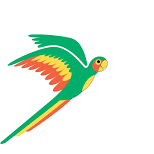
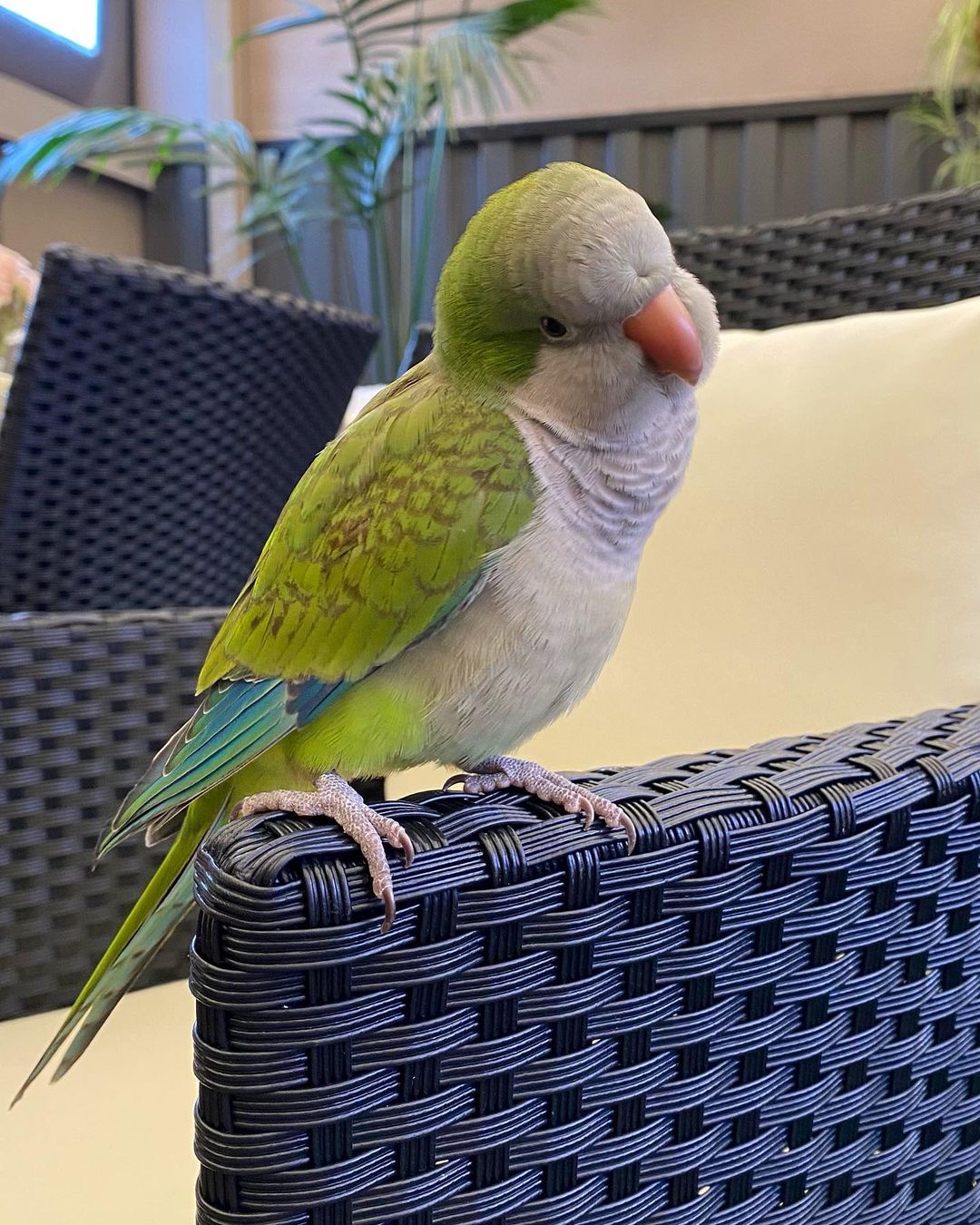
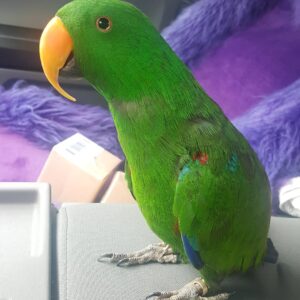
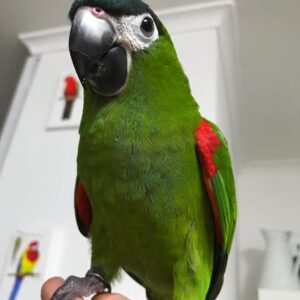
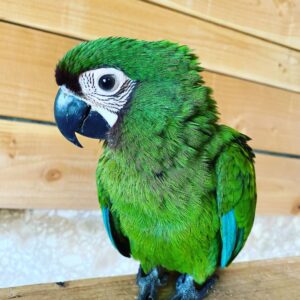
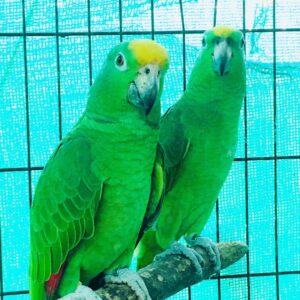
Serafina Meckler –
Everything is very open with a very clear explanation of the issues. It was definitely informative. Your website is useful. Many thanks for sharing!
Ivey Mcwalters –
Hey there I am so glad I found your blog page, I really found you by error, while I was researching on Bing for something else, Anyhow I am here now and would just like to say kudos for a remarkable post and a all round enjoyable blog (I also love the theme/design), I don’t have time to go through it all at the moment but I have bookmarked it and also added your RSS feeds, so when I have time I will be back to read a great deal more, Please do keep up the awesome work.
Darlene morris –
I am very interested in the quaker parrot…